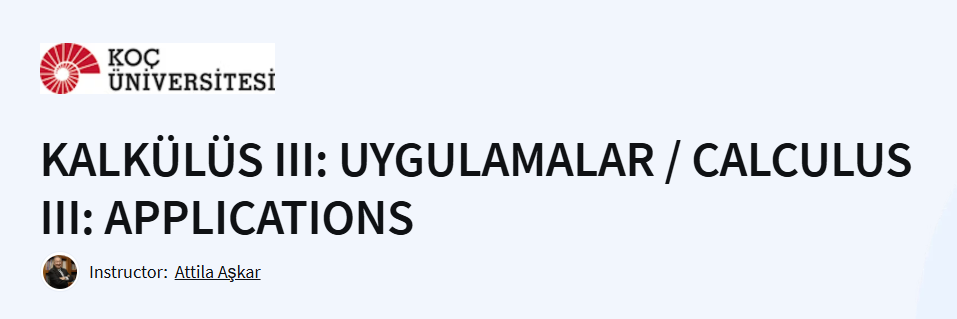What you will learn in Mathematics for Engineers Specialization Course
Master matrix algebra, including operations like multiplication, inversion, and LU decomposition.
Solve ordinary and partial differential equations to model physical phenomena.
Extend single-variable calculus to three dimensions, covering vector fields and surface integrals.
Apply numerical methods for root finding, integration, and solving differential equations.
Utilize MATLAB for scientific computation and simulation.
Program Overview
Matrix Algebra for Engineers
⏳ 19 hours
- Covers matrix operations, Gaussian elimination, LU decomposition, and eigenvalue problems.
Differential Equations for Engineers
⏳ 26 hours
- Focuses on first and second-order differential equations, Laplace transforms, and systems of differential equations.
Vector Calculus for Engineers
⏳ 26 hours
- Explores gradient, divergence, curl, and theorems like Green’s, Gauss’s, and Stokes’s.
Numerical Methods for Engineers
⏳ 26 hours
- Introduces numerical techniques for solving equations, integration, and differential equations using MATLAB.
Mathematics for Engineers: The Capstone Course
⏳ 9 hours
- Applies learned concepts to simulate fluid flow around a cylinder using MATLAB, culminating in the Kármán vortex street.
Get certificate
Job Outlook
Enhances mathematical proficiency for careers in engineering, data science, and computational modeling.
Provides a solid foundation for advanced studies in engineering mathematics and simulation.
Completing this specialization can bolster qualifications for roles requiring strong analytical and computational skills.
Specification: Mathematics for Engineers Specialization Course
|
FAQs
- Includes calculus, differential equations, linear algebra, vector calculus, and complex analysis.
- Covers mathematical modeling techniques for solving engineering and scientific problems.
- Focuses on analytical and computational methods used in electrical, mechanical, and civil engineering.
- Provides practice with problem-solving techniques and real-life engineering examples.
- Prepares students for advanced courses and professional applications in engineering and applied sciences.
- Basic knowledge of algebra, functions, and calculus is recommended.
- Familiarity with vectors, matrices, and derivatives will make learning smoother.
- The specialization builds gradually from foundational topics to advanced concepts.
- Includes practical exercises to reinforce understanding and application.
- Students with weaker backgrounds can review introductory topics to fully benefit from the specialization.
- Helps model mechanical systems, electrical circuits, fluid flow, and structural behavior.
- Provides tools for solving optimization problems, analyzing stability, and predicting system behavior.
- Supports simulation, design, and analysis in robotics, aerospace, and civil engineering.
- Strengthens problem-solving skills applicable to academic projects, research, and professional work.
- Bridges theoretical concepts with real-world engineering applications.
- Emphasizes manual calculations to understand fundamental concepts thoroughly.
- Introduces computational tools like MATLAB, Python, or Mathematica for complex or large-scale problems.
- Encourages students to verify manual solutions using software, enhancing reliability.
- Prepares learners for both academic exams and professional engineering applications.
- Strengthens conceptual understanding while building practical computational skills.
- Provides a strong foundation for engineering exams like GATE, ESE, and university assessments.
- Enhances problem-solving and analytical reasoning for both theoretical and numerical questions.
- Improves career readiness for roles in engineering, research, data analysis, and technical consulting.
- Builds confidence in tackling real-world problems with mathematical modeling and computational tools.
- Equips learners with interdisciplinary skills applicable across engineering, technology, and applied sciences.





